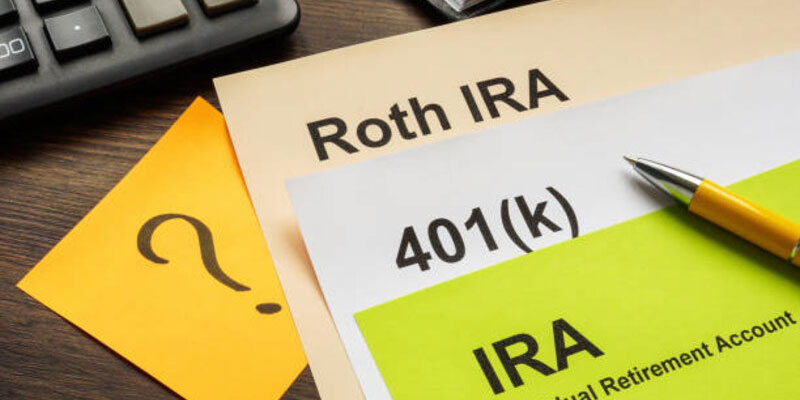Are you looking to maximize your retirement savings while minimizing the impact of taxes? Contributing to a Roth 401(k) can be an effective strategy, providing numerous tax advantages over traditional saving vehicles. In this blog post, we'll cover the basics of Roth 401(k)s and explain why they are so attractive from a tax perspective. You'll also learn how to determine if contributing to one is right for you and some tips on getting started. Read on for everything you need to know about using a Roth 401(k) for your retirement planning!
What is a Roth 401(k)?
A Roth 401(k) is an employer-sponsored retirement account that allows you to save and invest pre-tax dollars for retirement. The money you contribute is taxed upfront, meaning you will be tax-free when you withdraw from the account during retirement. Any earnings in the account are also tax-free.
How Are Contributions to a Roth 401(k) Taxed Differently Than Other Retirement Accounts?
Unlike traditional retirement accounts such as 401(k)s, Roth 401(k)s are funded with after-tax dollars. This means you won’t get an upfront tax break for contributions like you would with a traditional 401(k). However, when it comes time to withdraw your funds during retirement, all the money will be tax-free. This can be a great way to maximize your savings while minimizing the impact of taxes on the amount you eventually receive.
What Are the Benefits of Having a Roth 401(k)?

The tax advantages of a Roth 401(k) are the primary reason why it can be advantageous to contribute to one. By paying taxes on your contributions now, you will avoid having to pay any when you withdraw those funds during retirement. This can help your savings stretch further in the long run, as more money will be available for you when the time comes to retire.
Additionally, since Roth 401(k)s allow you to save after-tax dollars, they offer more flexibility than traditional retirement accounts. Contribution limits or required minimum distributions do not limit you; plus, you can withdraw funds from a Roth 401(k) without penalty before age 59 ½ if needed.
How Do I Know If a Roth 401(k) Is Right for Me?
When determining if a Roth 401(k) suits you, the best way to decide is by evaluating your tax situation. Generally speaking, if you're in a higher tax bracket now than what you expect to be when you retire, then contributing to a Roth 401(k) could be beneficial. On the other hand, if you anticipate being in a lower tax bracket during retirement, traditional saving vehicles may make more sense.
Tips on Getting Started With a Roth 401(k):
1. Speak with your employer to determine if they offer a Roth 401(k).
2. Calculate how much you can contribute each month and set up automatic contributions to ensure you meet this goal.
3. Consider other retirement accounts, such as an IRA or traditional 401(k), that best fit your needs.
4. Take advantage of any employer match programs – this allows you to get free money for saving for retirement!
5. Ensure that the investments in your account are appropriate for the level of risk you're comfortable with.
6. Monitor progress regularly and rebalance if necessary to stay on track with your goals.
With these tips in mind, you'll be well on your way to maxing out your retirement savings with a Roth 401(k).
What Are the Drawbacks of Having a Roth 401(k)?

While Roth 401(k)s can offer significant tax advantages, there are a few drawbacks. For one, the amount you can contribute each year is limited – $19,500 for people aged 49 and under in 2021, plus an additional $6,500 catch-up contribution for those aged 50 or older.
Additionally, you may be subject to taxes and penalties if you need to withdraw funds from your account before the age of 59 ½.
Finally, you'll need to track the contributions and any real estate appreciation on your Roth 401(k). This can be difficult since the money isn't taxed until it's withdrawn – so it's essential to stay updated with all these details!
How Can You Calculate Your Taxes on Withdrawal From A Roth 401 (K) Account?
When it comes time to withdraw your funds from a Roth 401(k), you'll typically owe taxes on any withdrawal that exceeds the number of your contributions. To calculate this, you'll need to keep track of both the original contributions as well as any real estate appreciation on those investments. The taxable amount is then determined by subtracting your original contributions from the total withdrawal amount.
It's important to note that there may be other considerations when calculating any tax liabilities due to a withdrawal from a Roth 401(k). This can include income tax brackets, age at retirement, and more. It's best to consult an accountant or financial advisor for help determining what taxes might be owed in your specific case.
Conclusion
A Roth 401(k) is an increasingly popular retirement savings option that offers flexibility and tax advantages. When deciding which type of account to use, evaluating your situation and determining what makes the most sense for you is essential. Careful planning allows a Roth 401(k) to maximize your long-term retirement savings goals significantly.
FAQs
Q: What is the maximum contribution limit for a Roth 401(k)?
A: The maximum contribution limit for 2021 is $19,500 for people aged 49 and under, plus an additional catch-up contribution of $6,500 for those aged 50 or older.
Q: Is there a penalty if I withdraw money from my Roth 401(k) before age 59 ½?
A: If you withdraw funds before age 59 ½, you may be subject to taxes and penalties. It's best to consult with an accountant or financial advisor to determine what taxes might be owed in your specific case.




